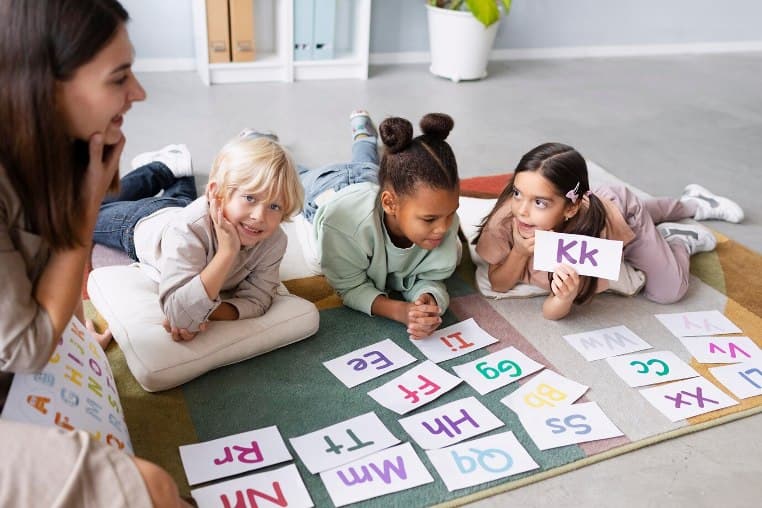Disrespectful behavior can be in the form of a negative statement, disobeying the teacher’s instructions, or using sarcasm. Nonverbal can be like rolling eyes, making faces at the teacher’s back and others.
A teacher should plan a strategic approach to defuse disruptive student behavior in college. The teacher should not take it personally, stay calm and identify the situation that triggers the student’s behavior. Depending on the extent of disrespect, whether verbal or non-verbal, escalate the problem to college management to do needful.
Every administrator wants teachers to know ways to deal with disrespectful college students. Together administrators and teachers should smartly manage such students with the right approach. There are ways other than asking a student to get out of class when showing disrespect. Effective strategies can help deal with challenging students.
How to Deal with Disrespectful College Students?
Do not react to a student’s behavior in the first place, as it can worsen situations. If you find it challenging, talk with your colleagues before deciding how to deal with it. You can try the below ways to handle the disrespectful situation.
Avoid Extreme Reactions
In most cases, a student disrespecting a teacher has no personal agenda. The teacher’s responsibility is to help the student identify their mistake and suggest ways to prevent them.
So, take a breath, and do not vent angry feelings on the student. You, as a teacher, can have better emotional control to make things smoother. Pause, and take your time before you react to the student’s behavior. Try to find the background of the problem before concluding it.
Try to Understand Student’s Perspective
Take a step back and try to understand the student’s situation. You may find reasons for their frustration and showing disrespect in class. Be empathetic and remind yourself that the student may be dealing with some transitions at home, with family, or with friends. Even when you don’t know the reasons for their struggle, empathy helps.
Stay Away from Impulsive Punishment
Punishment is the first thing that comes to a teacher’s mind when young adults act out in class. It can be by giving them extra work or the like. It can damage the relationship between the teacher and the student.
It is not effective when dealing with disrespect from a college student. Address the behavioral problem and try to find its roots. Try to know about the changes in behavioral episodes and think reflectively to help the student.
Don’t Take Offense
It’s better not to take offense as the young adults are still in their learning phase. It is critical to say that the behaviors aren’t meant for the teacher. Summing up, a rude situation may often seem to be silly. But when a student use words to disrespect teachers, take necessary steps for the student’s behavior, maintaining your calm.
Be a Model for Desired Behavior
If you do not want a student to be argumentative or disrespectful in class, do not project yourself in the same light. Avoid the behavior that you do not want the students to do. Model the behavior that you want to see in students.
Move on if you do not want the disrespectful situation to affect other students. Leave the student without answering anything, unsure of what to do at that moment. It will return to normalcy if it goes unnoticed repeatedly for the rest of the class.
Wait for the right moment to take a step before you reply to the disrespectful student in the first place.
Focusing on Teacher-Student Relationship
Focus on the relationship and help students understand how to stop rude behavior. A child with challenging behavior needs connection and tries to spend time with the kid and discuss non-school topics. Having a connection before correcting the child will help the teacher handle the situation easily.
Ignore as Much as Possible
Disrespecting may be a way of acting out for some kids, which is incorrect. Others may act like this to get attention. Ignoring it rather than giving it weightage or blowing it out of proportion is the best, in such cases.
Walk away and act as if you have not seen the eye roll. It reduces the chance of a power struggle and is an effective strategy to handle the situation.
Know How Much Strictness is Just Right
If things go beyond control, familiarize yourself with the student’s code of conduct. It helps find what constitutes a violation of a student’s behavior. If things do not settle after trying to make the student understand, calm the student.
Tell the student in a firm but low pitch that they should communicate professionally. Communicate to them that the current attitude is inappropriate. You have to take further steps depending on how they respond to your request at that moment.
Try to Handle Disrespectful Situation Kindly
Show that the student has dignity in your eyes and be kind to them. Even when you demand something, ask them instead of telling them. Make it sound like a request instead of requiring.
It can be hard for a teenager to disrespect someone who is kind and shows him or her, love. This is to overcome the disrespect with love and kindness.
Everyone is more likely to obey a teacher and be like them. Show what more students want to see in a teacher. A good relationship can dissolve, distrust or dislike. People tend to mirror strong leadership.
Show respect as your strength and see how it reflects on the students. Invest time in developing a good relationship with students, and it will work in your favor in times of need.
Inform Parents
Over disrespectful behavior from a college student needs quick notification to parents. Sending a letter home is a suitable action. It is like being accountable that will last beyond the day of the complaint for the student.
To Sum Up
Early detection will help the teacher plan suitable strategies for disrespectful behavior in college. If things do not work, escalating the problem to higher authorities is preferable.
A variety of coping mechanisms can be effective, including using humor or talking with the student in small groups. An interactive nature with the student helps address the behavior of the student. Rudeness is disruptive behavior, affecting adversely on both students and teachers. The early you address it, the easy it becomes to handle.





